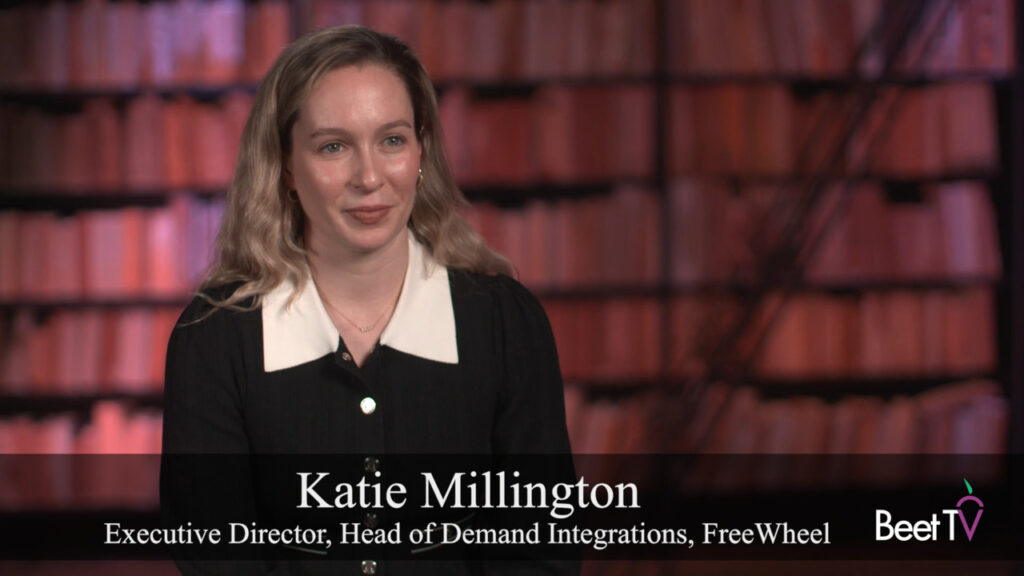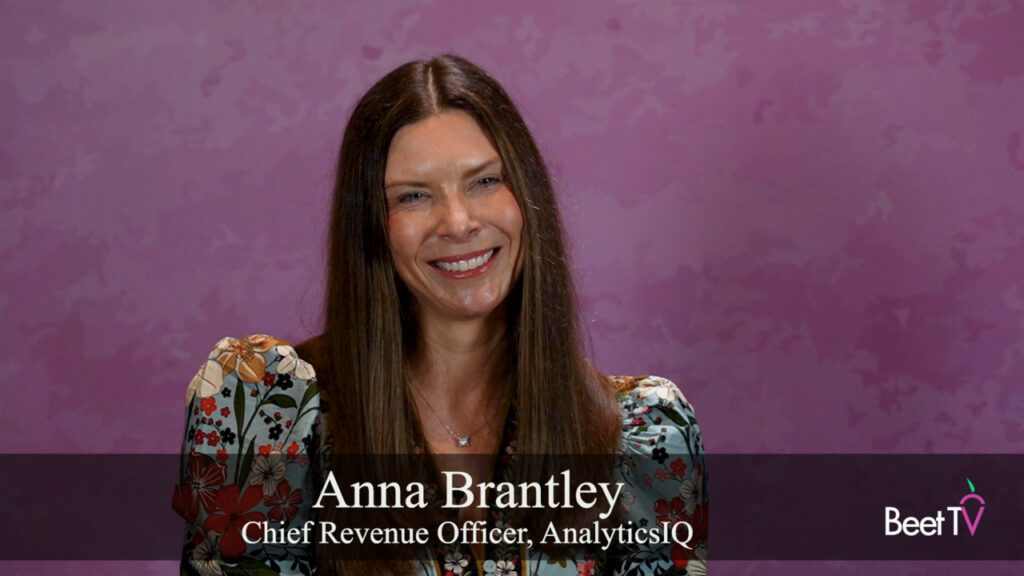OAKLAND – Apple’s decision to rip up the fabric of ad targeting on iOS devices will have big repercussions, forcing businesses to change both their revenue mode and their user experience.
That is according to one executive whose company is now having to help app owners through the turbulence.
The tech company is due to change its Identifier for Advertisers (IDFA), which advertisers use to identify iOS devices so they can deliver customized advertising, to a default opt-in.
One Forrester analyst expects 70% of iPhone users may decide not to opt in.
In this video interview with Beet.TV, AppsFlyer‘s US president and GM Brian Quinn says the impact will be wide-ranging.

Free under fire
Quinn says makers of free, ad-supported apps are going to be up-ended, whilst paid-for, ad-free apps will be left in a calmer state.
“To pay for engineering and to pay development of their companies and of their products, they monetize users,” says Quinn. “That’s at risk in a big way.
“So some companies are thinking about their business models and what they’re building and why. Others are considering how they’re going to adapt to targeting if they’re unable to use user level identifiers.
“They’re looking at how they’re going to optimize. They’re looking at how they’re going to measure and attribute users.”
Recalibrating user journeys
Companies aren’t just having to re-examine their business models. Even many of those which are not or cannot do so are having to redesign their user flows to ensure continuity of user data.
Apple has actually proposed replacing IDFA with a system called SKAdNetwork, which aims to provide conversion data to advertisers but without revealing any user-level or device-level data. Quinn says that makes for difficulties.
“It’s not very granular. It’s going to need a lot of improvement to get to the viability that marketers would expect. And so, we see and we’re helping our customers think about additional flows, so maybe bringing users into mobile from email campaigns; maybe bringing users into mobile from more web campaigns.
“It would move privacy in the right direction, but the user experience would certainly suffer in the short term.”
Quinn thinks companies may attempt workarounds by bringing users into mobile from email or web campaigns, or by having their apps actually direct users out to websites.
Not so fast
Apple had been due to make the change in this month’s iOS 14 release, but has delayed the change to early 2021 amid industry concern.
Still, Quinn and others think the move has been rushed. And many will fear that Apple is normally a company known for doing things its own way, without consultation.
“By announcing such a drastic change over a short period of time, it’s quite disruptive and it’s very hard for developers and their partners to collaborate on solutions,” Quinn says.
“This delay by Apple to push this out until early next year is, in part, a recognition that they need to work with the rest of the stakeholders in the industry to affect this change.”
Future Flying
Quinn’s AppsFlyer is a nine-year-old mobile attribution and analytics company headquartered in Israel that aims to help businesses measure campaigns, fight fraud and segment first-party data to understand journeys across devices.
In January, the company raised a huge, $210 million Series D investment round, led by General Atlantic, as it aims to branch out from attribution to other offerings.
Quinn says the company has around 1,000 global employees across 18 offices.
That’s where we’re focused now,” he says, “- extending the use of attribution data across the enterprise.”
https://techcrunch.com/2020/01/21/appsflyer-raises-210m-for-ad-attribution-and-more/
This video is from a Beet.TV series title Advertising in a Time of Privacy-Centricity presented by AppsFlyer. For more videos from the series, please visit this page.




































